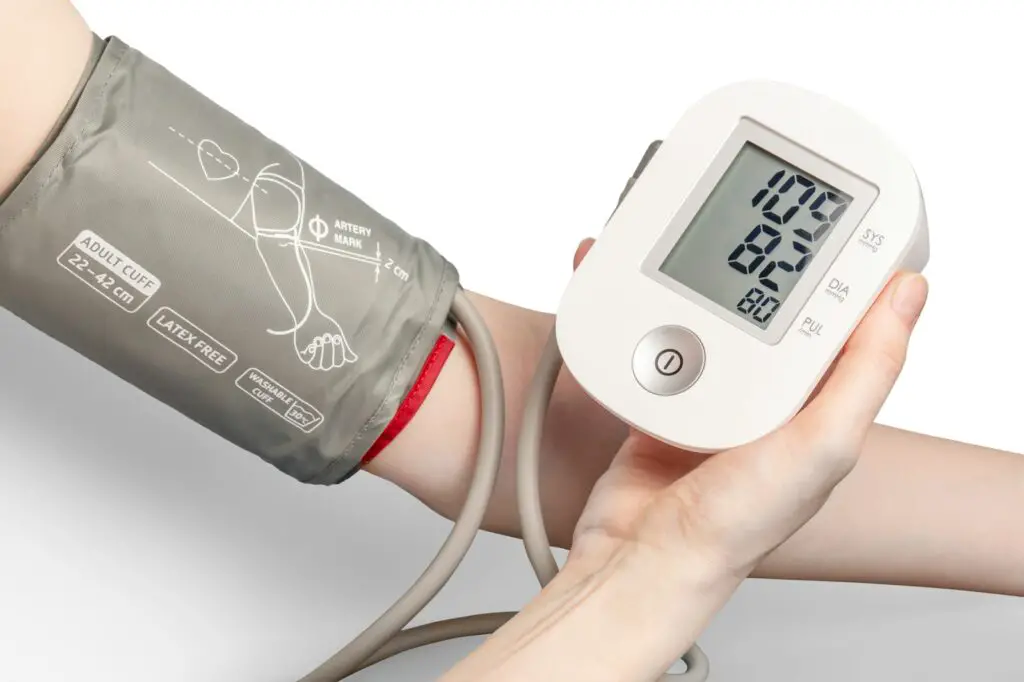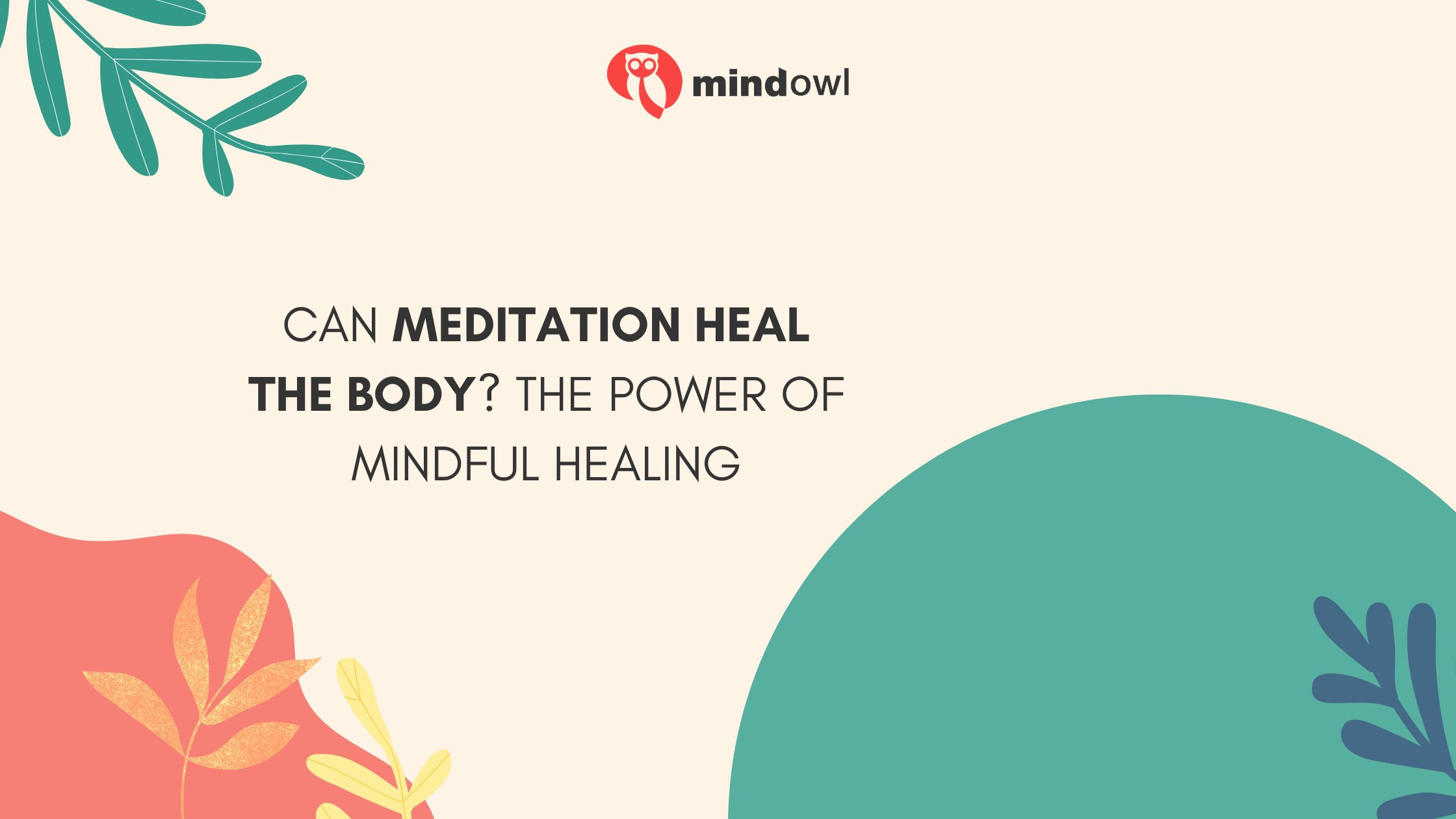In a world where stress and anxiety seem to be at an all-time high, many are turning to meditation as a way to find inner peace and balance. But can this ancient practice heal the body? The idea of mindful healing through meditation has been gaining momentum in recent years, with more and more scientific studies supporting its effectiveness.
Meditation is not just about quieting the mind; it is about bringing awareness to the present moment and connecting with our body on a profound level. By reducing stress, anxiety, and other negative emotions, meditation has been shown to have a positive impact on our physical health as well. From lowering blood pressure to boosting the immune system, the power of meditation in healing the body is truly remarkable
In this article, we will explore how meditation can heal the body, the science behind its effectiveness, and how you can incorporate this practice into your daily routine for a healthier, happier life.
Key Takeaways
- Meditation reduces stress and anxiety by calming the mind and can lower cortisol levels.
- Regular meditation practice enhances immune system function, helps control pain, and may reduce age-related memory loss. It also has the potential to lower blood pressure.
- Mindfulness-Based Stress Reduction (MBSR) and guided imagery are effective meditation techniques for promoting relaxation and well-being.
- Case studies have shown significant health improvements in individuals who include meditation in their recovery plans. This includes faster healing rates post-surgery, reduced chronic pain discomfort, better emotional well-being among cancer patients, and decreased symptoms of anxiety disorders.
- While meditation offers many health benefits, it should not replace medical treatment but rather complement it for overall holistic wellness.
Understanding Meditation and Its Healing Potential
Reduces stress and anxiety
Engaging in meditation helps calm the mind and body, making it a powerful tool for reducing stress and anxiety. This practice can lower levels of cortisol, a hormone linked to stress.
By focusing on the present moment and breathing deeply, you engage parts of the brain that promote relaxation. Studies have shown that regular meditation contributes to an overall sense of well-being.
Guided meditation exercises and mindfulness-based stress reduction (MBSR) are effective methods for tackling symptoms of depression and generalised anxiety disorder. These techniques teach individuals how to manage their thoughts and feelings more calmly, leading to reduced worry and improved mental health.
Meditation isn’t just about quietness; it’s a form of active healing that addresses both mental disorders like major depressive disorder and physical issues such as chronic pain.
Meditation teaches us to be more present in the moment, which is incredibly freeing when dealing with chronic stress or anxiety.
Enhances self-awareness and emotional health
Meditation enhances self-awareness, aiding in the comprehension of one’s thoughts and emotions. It brings clarity to your mind, illuminating patterns that may have previously been hidden.
This understanding paves the way for healthier coping mechanisms for stress and negative emotions. Mindfulness meditation is particularly helpful for this as it conditions the brain to concentrate on the present moment, augmenting awareness of one’s emotional state without critiquing it.
This habit also substantially boosts emotional health. Regular practitioners often notice diminished levels of emotional overwhelm. They handle stress more efficiently and exhibit fewer fluctuations in mood.
Loving-kindness meditation, centred on cultivating feelings of compassion for self and others, can particularly amplify positive emotions and empathy. These alterations contribute towards making daily experiences more pleasant and may assist in mending psychological scars over time.
Key Benefits of Meditation for Physical Health
Improves immune system function
Practicing meditation regularly boosts immune system function. This powerful tool activates parts of the brain that control stress and, by doing so, helps shield the body from illness and infections.
Studies have found that people who meditate tend to have more antibodies—a sign of a strong immune response—compared to those who don’t. It’s clear: keeping your mind calm can actually make you healthier.
Engaging in meditation also reduces inflammation in the body, which is linked to numerous health conditions like heart disease and arthritis. By focusing on relaxation techniques, individuals can lower their risk for these issues and enjoy better overall health.
Meditation’s role in healing extends beyond mere prevention; it aids recovery too, helping bodies heal faster after getting sick.
The act of meditating strengthens not just the mind but the body’s defences as well.
Helps control pain and may reduce age-related memory loss
Meditation can do wonders for managing pain. It engages parts of the brain that deal with attention and emotion, making it easier to handle physical discomfort. This practice is especially helpful for those with chronic conditions, like back pain or arthritis.
By focusing on the moment and using techniques such as body scanning, individuals learn to shift their perception of pain.
Research also indicates meditation might keep our memories sharp as we age. Engaging in types like mindfulness-based meditation has shown positive effects on areas of the brain associated with memory and cognition.
Studies suggest regular sessions could slow down age-related memory loss and even improve cognitive function in older adults. This makes meditation a powerful tool not just for our present wellbeing but also for maintaining mental health into later life.
Can decrease blood pressure
Regular meditation practice can help lower high blood pressure. Studies show that engaging in mindfulness and meditation may reduce stress and decrease heart rate, which in turn helps control blood pressure.
This method of relaxation is a natural way to support cardiovascular health without relying solely on medication.
Using meditation for healing focuses on calming the mind, which directly influences the body’s stress response system. Lowered stress levels mean less strain on your arteries, leading to better circulation and reduced blood pressure numbers.
People with hypertension often notice improvements after adding daily meditation sessions into their routine, making it an effective tool for maintaining overall heart health.

Meditation Techniques for Healing
Meditation techniques for healing can vary, but they all aim to foster mindfulness and relaxation: Mindfulness-based stress Reduction (MBSR) is a popular approach that emphasises paying attention to the present moment…
Guided imagery and relaxation techniques involve visualising peaceful scenes or sensations to promote calmness.
Mindfulness-Based Stress Reduction (MBSR)
The Mindfulness-Based Stress Reduction, often abbreviated as MBSR, is a tailored programme aimed at assisting individuals to efficiently manage stress, augment their overall well-being, and spur the body’s healing capacity.
Conceived by Jon Kabat-Zinn in the 1970s at the medical branch of the University of Massachusetts, this approach synergises mindfulness meditation with yoga for an holistic engagement of mind and body.
Through this, learners are guided to centre their attention on the ‘now’, devoid of any judgemental notions. The ultimate goal of this technique is stress alleviation and inducing a sense of relaxation.
The effectiveness of this method has been asserted positively across multiple health situations, such as anxiety, depression, chronic pain, and heart disease. Research points out that consistent MBSR practice may usher changes in brain activity linked to attention, emotion management, and self-awareness.
These benefits collectively contribute towards the substantial enhancement of overall health and the quality of life for individuals who integrate MBSR into their daily regimen.
Guided imagery and relaxation techniques
Guided imagery and relaxation techniques take you on a mental journey to promote healing and recovery. Imagine your mind as a powerful tool that can transport you to a calm, peaceful place.
Here, stress melts away, and your body taps into its natural ability to heal. You simply listen to soothing words and sounds, guiding your imagination to visualise relaxing scenes or experiences.
This form of meditation has shown incredible potential in reducing symptoms of stress (biology), aiding sleep, and improving overall health and well-being.
Practising these techniques regularly helps engage parts of the brain involved in relaxation—the same areas that might be less active when we’re feeling stressed or anxious. Studies have found that individuals who use meditation including guided imagery experience lower levels of pain, anxiety, depression; they also show changes in patterns within the brain associated with calmness and emotional regulation.
It’s like turning down the volume on your stress response by simply using the power of your imagination.
Engage in meditation not just as an escape but as a path to enriching our inner lives.

Real-Life Applications of Meditation in Healing
Real-life applications of meditation in healing are widespread and varied. Case studies have shown significant improvements in health, alongside the adoption of mindfulness practices in clinical settings.
Case studies on recovery and health improvements
Meditation has been associated with numerous case studies showing remarkable recovery and health improvements. Here are the key examples:
- An analysis of patients recovering from surgery revealed significantly faster healing rates among those who included meditation in their treatment plans.
- A study involving individuals with chronic pain demonstrated a substantial reduction in discomfort and an improved ability to manage pain through regular meditation practices.
- Research conducted on cancer patients showed improved emotional well-being, reduced stress levels, and enhanced quality of life as a result of practicing meditation alongside conventional treatment.
- Case studies on individuals suffering from anxiety disorders illustrated a significant decrease in symptoms and an overall improvement in mental health after integrating mindfulness meditation into their daily routines.
These real-life instances not only highlight the potential of meditation for promoting recovery and well-being but also provide tangible evidence of its positive impact on health outcomes.
Meditation in clinical settings
Meditation is increasingly being integrated into clinical settings as a complementary therapy for various health conditions. Research has shown that mindfulness meditation, in particular, can reduce stress and anxiety levels in patients undergoing treatment for chronic illnesses such as cancer and cardiovascular disease.
This practice has been found to improve pain management and aid in the reduction of symptoms associated with irritable bowel syndrome and insomnia. Moreover, hospitals are incorporating meditation programmes to help patients manage their mental well-being during their healing journey, demonstrating the growing recognition of meditation’s role in holistic healthcare.
The implementation of mindfulness-based interventions in clinical settings has demonstrated promising results in improving patient outcomes across a range of physical and mental health conditions.
FAQs About Meditation and Healing
Can meditation show results quickly? Is it a replacement for medical treatment?
How long does meditation take to show results?
Meditation can take several weeks to months before noticeable results manifest, although some individuals may experience benefits sooner. The duration for tangible outcomes varies depending on factors such as frequency of practice, the type of meditation used, and an individual’s receptiveness.
For instance, mindfulness meditation has been linked to reduced stress and improved emotional well-being after eight weeks of regular practice. Studies suggest that changes in brain patterns and cognitive functions may occur within a few weeks of consistent meditation.
Can meditation replace medical treatment?
Meditation should not replace medical treatment but can be a beneficial addition to traditional healthcare.
Meditation techniques like Mindfulness-Based Stress Reduction (MBSR) and guided imagery have shown promise in promoting physical healing. While meditation offers many benefits for overall well-being, it’s essential to consult with healthcare professionals for proper medical diagnosis and treatment.
Integrating meditation alongside conventional medical care can enhance holistic wellness.
Conclusion
After delving into the potential of meditation for healing, it’s clear that its practice offers numerous benefits for both the mind and body. From reducing stress and anxiety to boosting immune system function and controlling pain, meditation has been shown to have a positive impact on physical health.
Real-life applications through case studies further support its effectiveness in promoting overall well-being.
To sum up, integrating meditation into one’s routine provides a powerful tool for enhancing physical health and mental well-being. By harnessing the power of mindful healing through meditation techniques, individuals can experience real improvements in their overall health.
Embracing this ancient practice could be a beneficial addition to anyone seeking natural ways to elevate their holistic wellness.
MindOwl Founder – My own struggles in life have led me to this path of understanding the human condition. I graduated with a bachelor’s degree in philosophy before completing a master’s degree in psychology at Regent’s University London. I then completed a postgraduate diploma in philosophical counselling before being trained in ACT (Acceptance and commitment therapy).
I’ve spent the last eight years studying the encounter of meditative practices with modern psychology.

